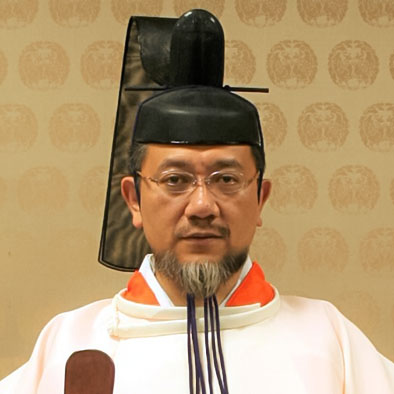パネリスト・モデレーター紹介

三宅 善信 師
Rt. Rev. Yoshinobu Miyake
第5セッション
「生命科学と宗教」
パネリスト
経歴
1958年、大阪市生まれ。同志社大学大学院とハーバード大学世界宗教研究所で学ぶ。長年、金光教泉尾教会総長として諸宗教対話活動に従事。1997年、日本で最初の宗教情報専門ウェブサイトを運営する(株)レルネットを設、CEOに就任。(公財)WCRP日本委員会理事、大阪府宗教連盟常任理事、神道国際学会理事長、関西国連協会副本部長等を兼任。G20諸宗教フォーラム2019の運営委員長として尽力する。
Curriculum Vitae
Rt. Rev. Yoshinobu Miyake, born in 1958 into a well-known family of Shinto priests in Osaka, Japan.
He studied at Doshisha University in Kyoto and at Harvard Univ. and publishes frequently.
He took important rolls in his Shinto Church as Superior General.
For the past 40 years he has been active worldwide in the interfaith field.
In 1997 he established RELNET Corporation, whose website publishes widely on religion-related matters.
He serves as board member of Religions for Peace Japan, the Chair of the Board in International Shinto Studies Association, the Vice President of the UN Association Japan Kansai Capital, and so on.
Most Recently, he led G20 Interfaith Forum 2019 to success as the Chair of the Steering Committee.
梗概
人間の知的営みの結集である「科学」は、伝統的に、人文科学、社会科学、自然科学という三つの分野に分けられてきた。哲学や文学といった人文科学は、古代から宗教の「隣」の分野として実践されてきた。法学や経済学といった社会科学も、中世から近世へと移行する過程で複雑な大系を築き上げた。そして、最後に残ったのが自然科学である。
宇宙の歴史や物質の成り立ちを究明する物理学的真理は、たとえ神や人間がこの世に存在しようとしまいと関係なく、厳然と存在し、世界を秩序づけてきた。また、化学も物質の状態の変化について解明してきたが、これらの科学的成果と宗教教義が争うことには何の意味もない。何故なら、たとえ宗教が存在しなくても、これらの「法則」は存在しているからである。
ところが、生命科学に関しては、人はこれを「宗教的価値観」を抜きにしては語ることができない。いのちの「働き」やその「意味」について問うことは、宗教の目的そのものと合致するからである。たとえ個々の生命はちっぽけで有限な存在であったとしても、食物連鎖という「水平的繋がり」と、個々のいのちの中に遙か昔から遠い未来にまで連続する「垂直的繋がり」の両方を通じて、われわれは「大いなる根源的ないのち」との繋がりを自覚できるからである。
遺伝子組み換え、出生前診断、臓器移植、延命治療をはじめとする現代社会に惹起するさまざまな生命科学の問題について、世界の諸宗教の皆さんと意見を交換したい。
Abstract
"Science," a collection of human intellectual works, has traditionally been divided into three areas: human sciences, social sciences, and natural sciences.
Human sciences such as philosophy or literature have been practiced since ancient times as a field “next to” religion.
Social sciences such as law or economics also built up a complex system during the transition from the Middle Ages to the modern times.
And the last thing left is natural sciences.
The physical truth, which investigates the history of the universe and the formation of matter, has resolutely existed and ordered the world, regardless of whether God or human beings exist in this world.
Chemistry has also elucidated changes in the state of matter, but these scientific achievements and religious doctrines have no meaning in conflict.
Because even if religion does not exist, these "principle" still exists.
However, in the life sciences, one cannot talk about this without "religious values".
It is because asking about the "work" of life and its "meaning" matches the purpose of religion itself.
Even though each life is a tiny and finite existence, through both the "horizontal connection" of the food chain and the "vertical connection" which continues from the distant past to the distant future in each life, we can be aware of the connection to "the Great Primordial Life".
I would like to exchange views with each one of you in the different religion in the world on various issues in life science that arise in modern society such as genetic modification, prenatal diagnosis, organ transplantation, and treatment for prolonging life.
